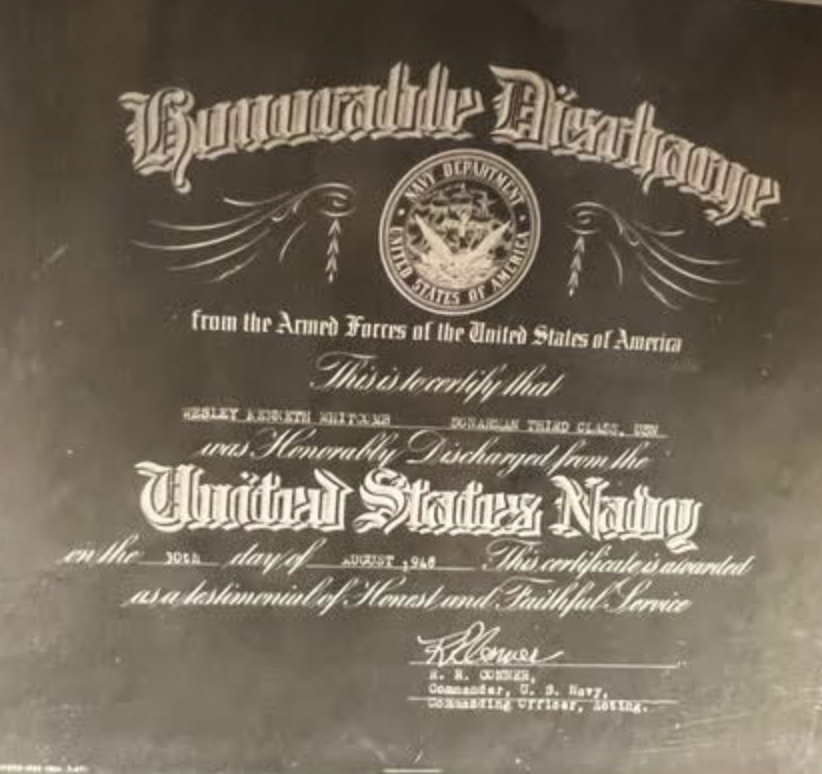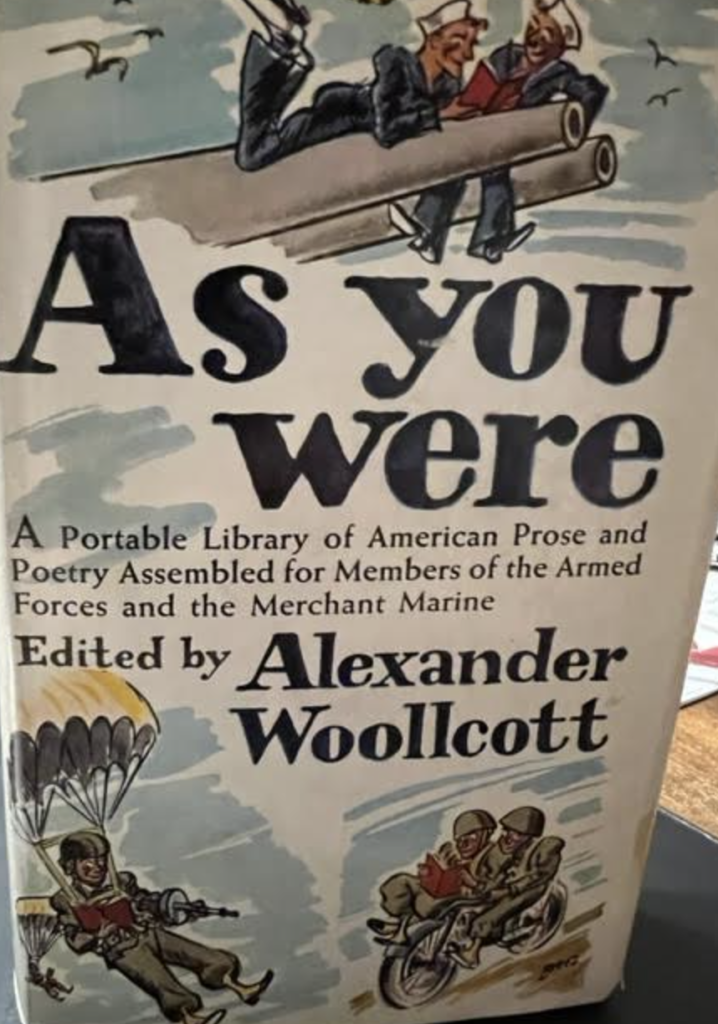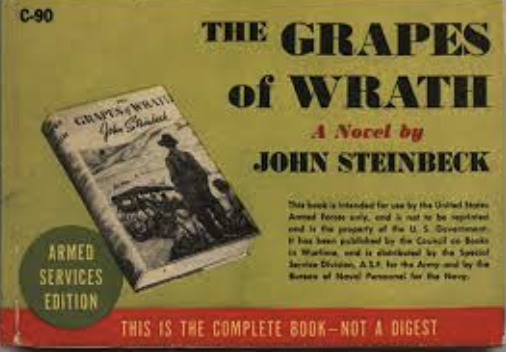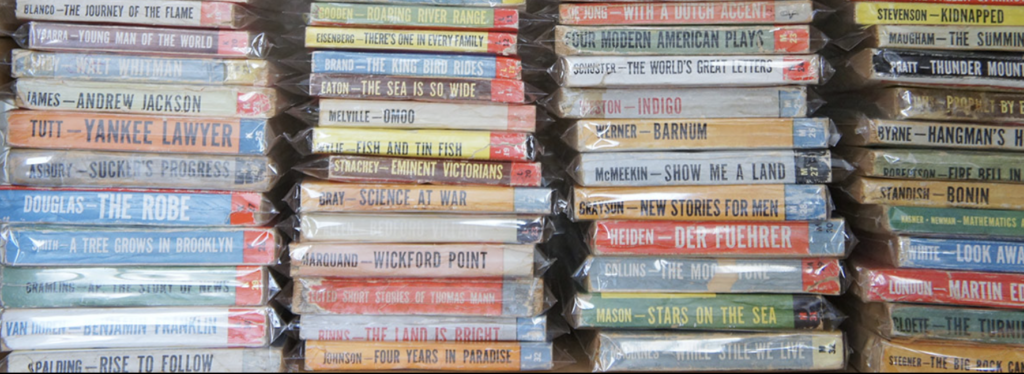When I was in my early teens, I wasn’t nearly as interested in World War II as I could have been.
Correct that — should have been.
My dad was a veteran infantryman in the Army and my birth father was a sonarman in the Navy. Both were young veterans. Norman Rappaport was 19 when the war in Europe ended and Wesley Whitcomb turned 18 two days before V-J Day.
I know very little about their experiences, although oddly enough, I have a photo of my father’s discharge papers even though the last time I saw him was 1952.

Sadly, if I’m honest with myself, I was almost a borderline sociopath in my lack of interest in other people.
I’m reminded of the character Mandy Moore played in “American Dreamz.”
“I’m not attracted to other people.”
But even though I’m a little slow in getting started, there is a point to all this. My dad had an amazing book collection, and one of the ones I can across literally blew me away. It was called “As You Were,” and it was described as “a portable library of American prose and poetry assembled for members of the Armed Forces and the Merchant Marine.
It was assembled and edited by Alexander Woollcott, who was a member of the Algonquin Roundtable.
A smart guy.
“As You Were” was Volume One of 12 in the Viking Portable Library and was more than 650 pages — on thin paper, of course — of American Fiction, American Verse and American Fact.
Think about it. Is it even possible to imagine modern-day soldiers, sailors and others reading a book with 75 pages of poetry — none of them bawdy limericks — and nearly 200 pages of non-fiction?

I mean, who reads anymore?
But they read in World War II, and not just Woolcott’s book. I have written before about Armed Services Editions, small books printed on thin paper of almost anything anyone would want to read, There were more than 1,300 editions published between 1943 and 1947, and more than 122 million copies were printed.

I’ve been collecting them, and when my latest order from eBay arrives, I’ll have 25.
Why did people read so much more then?
Easy answer.
No television.
No video games.
Still, I become more fascinated with every page I turn in “As You Were.” Even the fiction is more intelligent than not. First on the menu is Stephen Vincent Benet’s classic, “The Devil and Daniel Webster.” Then there are Poe and Twain, Cather and Hemingway. Just read this book and you would be more well-read than average present-day Americans.
I don’t read many of the Armed Services Editions I’m collecting, mostly because they are in very fragile shape and turning the pages isn’t good for them. But the Woolcott book will survive my reading it, and when I’m done with it, it will go into a place of honor in my bookcase.
It’s a reminder of a better America.
I know I’ve been using this phrase too much, but it’s valid here.
“This used to be a helluva good country.”

